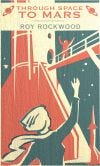Amazonian Insight
As the whole controversy about Amazon/Hachette rolls on, with the rumor spreading like wildfire last night that Amazon was doing funny things with not delivering ebooks (They aren't. There is a known glitch that affects very few systems and it is already under repair. But people are more interested in conspiracy theories than facts) I hadn't planned to blog on it again.
And then I found this: "So the question is this: Is Amazon a disruptor because of its size? Or is its size a result of previously stifled innovation? The culture of the Big 5, which was built by gobbling up successful small presses and rolling them into imprints, left the door wide open for Amazon, a company that dared to sell direct to consumers, innovate the way we read, and pay authors a living wage. You know, the first company to actually compete.
The response to this new competitor has been to blacklist Amazon-published books from brick and mortar stores and to collusion within the publishing monoculture. Where is the outcry for Amazon-published authors who are blocked from sale by practically every brick and mortar store? It doesn’t exist. The response is simply: That’s what those authors get for signing with Amazon. Imagine an observer today saying “That’s what those authors get for signing with Hachette.” The hypocrisy astounds."
Written by Hugh Howey, there is rather a lot more, and it's very very good. I've said it before, and I'll keep saying it. Amazon is a business. So is Hachette. Hachette is certainly not, as it's advocates seem to think by they way they speak and act, an author charity.
Nor is Amazon the death of literature. I bought a book yesterday. Yes, yes, I know. I do that practically every day, and a lot of them are purchased through Amazon. Not this one. However, when this one was published, it was at a time when a new upstart genre was burgeoning, and that genre was pooh-poohed as being yet another opiate of the masses. I hold in my hands (metaphorically. I can't hold it and type at the same time) a book that is one hundred years old (plus a little) and it is still readable. But it wasn't meant to last this long, it was printed cheaply and quickly, and meant for an afternoon's reading by a dreaming child.
Science Fiction: it encouraged dreaming, and escapism, and fostered an unreal look at what science could do for us. After all, in 1910 when this book was published, who could have imagined man would someday walk on the moon? Or, as the title of my find implies, travel "Through Space to Mars"?
What happened to that joyous unreality? Or for that matter, to the idea that we could forge new things, not cling rabidly to the old when doors swung open before us. I suppose that is human nature. We want to stay comfortable with where we have been, not seek out new adventures.
Now, I have a very busy day of writing a new book for a new generation of dreaming children. I don't anticipate my book will still be around in a hundred years. But I don't imagine Roy Rockwood (almost certainly a penname) thought that, either.

Click on the cover to get a copy of the book and read it yourself, chuckling at the science and characters. How much we have changed in a mere century!



